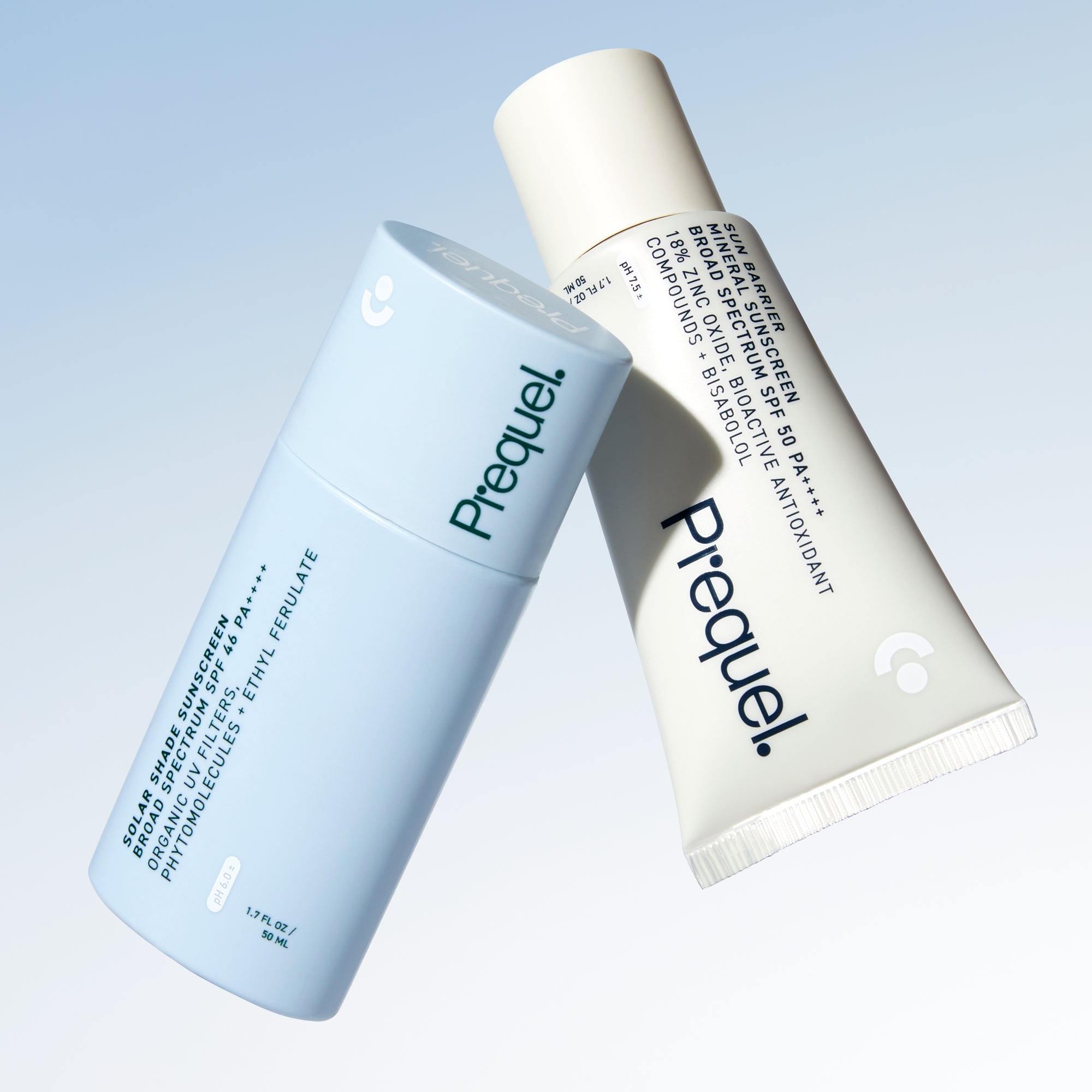A sunscreen labeled with a broad spectrum claim indicates that it shields the skin from both UVA and UVB radiation, the two primary types of ultraviolet radiation that contribute to skin damage, premature aging, and skin cancer. Sunscreens that do not indicate broad spectrum only protect against UVB radiation and only have an SPF value on the packaging. Broad-spectrum sunscreens have the additional claim “broad spectrum” listed before the SPF value. These sunscreens offer comprehensive coverage, preventing burns primarily caused by UVB radiation and premature skin aging primarily associated with UVA radiation. While UVB radiation is traditionally referenced as the ultraviolet radiation that contributes to skin cancer, UVA radiation is also carcinogenic and can lead to skin cancer in an indirect way. The FDA requires the following labeled warning on sunscreens that do not have a broad spectrum claim: “Skin Cancer/Skin Aging Alert: Spending time in the sun increases your risk of skin cancer and early skin aging. This product has been shown only to help prevent sunburn, not skin cancer or early skin aging.” For effective protection, it's recommended to use a broad spectrum sunscreen with an SPF of 30 or higher, applying it generously and reapplying every two hours to maintain its protective barrier against the sun's harmful effects.
Broad Spectrum vs. Regular Sunscreen: What's the Difference?
Regular sunscreens, those without a broad spectrum claim, protect against UVB radiation, the main cause of sunburn and a significant factor in skin cancer. Broad spectrum sunscreens, however, provide a defense against both UVB and UVA rays and further protect against skin cancer. UVA radiation penetrates deeper into the skin, leading to signs of aging and also playing a role in skin cancer development. Broad spectrum sunscreens offer more complete protection compared to normal sunscreens that may primarily focus on UVB rays. The broad spectrum claim is substantiated by the sunscreen product achieving a minimum critical wavelength of 370 nm and an SPF>15. This means 90% of the UV radiation the sunscreen absorbs is below 370 nm at a minimum. It tells you how broad or how far your protection extends. Caveat, broad spectrum does not indicate the degree of UVA protection which is indicated by other claims and requires separate testing. Broad spectrum also does not mean 100% protection from UV radiation which is a claim not allowed by the FDA. The claims “sunblock” or “total protection” are also not allowed on sunscreen products.
Is Broad Spectrum Sunscreen Better?
Considering the broader range of protection it provides, broad spectrum sunscreen is indeed the preferred choice. The efficacy of broad spectrum sunscreen in protecting against both UVB and UVA radiation makes it a superior choice for those looking to maintain healthy skin. Prequel currently offers 2 forms of broad spectrum sunscreen to provide the type of sunscreen you prefer.
Both Prequel's Sun Barrier Broad Spectrum SPF 50 PA++++ Mineral Sunscreen and Solar Shade Broad Spectrum SPF 46 PA++++ Chemical Sunscreen were designed to provide high-level protection against UVB and UVA radiation. The SPF 50 and SPF 46 ratings ensure strong UVB radiation protection while the broad spectrum claim indicates protection against UVB and UVA radiation. Plus, both the Prequel Mineral Sunscreen and Prequel Chemical Sunscreen have a PA++++ rating, the highest UVA radiation protection level to claim under this rating system.
Our Sun Barrier Broad Spectrum SPF 50 PA++++ Mineral Sunscreen is made with ingredients that support the skin's moisture barrier, enhancing the skin's defense against environmental stress. It's also formulated to be gentle on the skin, without leaving a heavy or greasy residue.
Our new Solar Shade Broad Spectrum SPF 46 PA++++ Chemical Sunscreen is formulated with organic UV filters, rice phytomolecules, ethyl ferulate, and microalgae to boost antioxidant protection. It's developed for all skin types and skin tones, leaves no white-cast and provides a skin-like finish.
Selecting a broad spectrum sunscreen is important for anyone looking to protect their skin from the full array of harmful UV rays. By using either of Prequel's broad spectrum sunscreens, you're taking a significant step in preventing not just sunburn, but also the long-term damage associated with UV exposure. Our formulas are designed to fit seamlessly into your daily routine, offering protection that's effective for everyday use.
What is UPF?
In addition to applying a broad spectrum sunscreen, another way to protect your skin from UV radiation is by wearing photoprotective clothing. Photoprotective clothing has been tested and rated via the Ultraviolet Protection Factor (UPF) scale to indicate the amount of UV transmission it blocks. This outcome of the testing depends on the fabric material, weave, and dye. Darker dyes tend to block UV radiation more than lighter dyes while fabrics such as polyester and cotton perform better at limiting UV transmission to the skin than linen or knit. Clothing with a UPF rating is either UPF 15 corresponding to 93.33% of UV radiation blocked, UPF 30 for 96.67% UV radiation blocked, or UPF 50 for 98% UV radiation blocked. Photoprotective clothing such as our Prequel UPF 50+ hat can compliment our Sun Barrier Broad Spectrum Mineral Sunscreen or Solar Shade Broad Spectrum Chemical Sunscreen applied to the face and neck by further reducing UV transmission to the skin. It also helps maintain protection for those that tend to forget reapplication of topical sunscreen products.
DISCLAIMER: All skin care articles are intended to help educate on specific ingredients and skin care topics. Our articles are written to be informative and informational. Any reference to a specific patient experience is not a medical suggestion for treatment. Please note that any Prequel products with referenced ingredients are formulated for Cosmetic Use Only and NOT intended as replacements for physician advice and/or pharmaceutical product recommendations.




